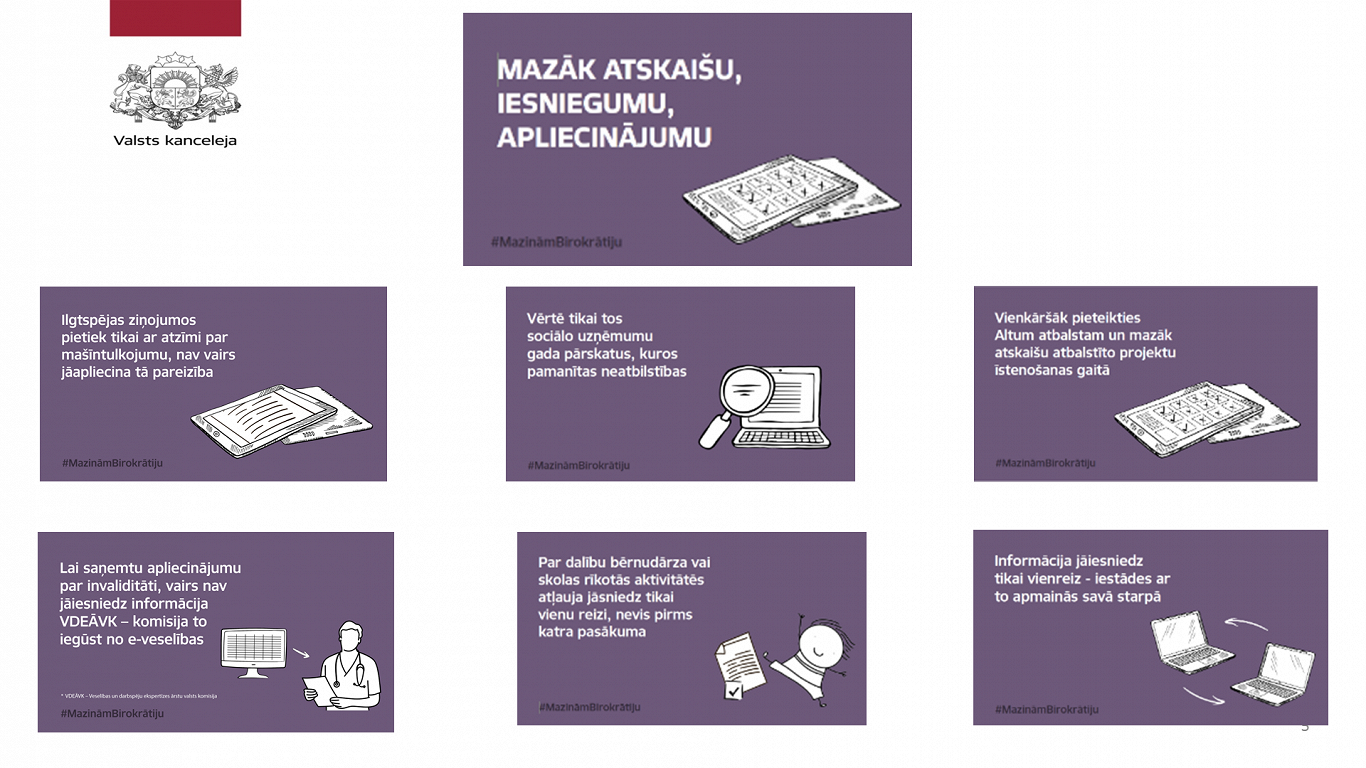A total of 21 measures have been identified and are planned to be implemented this year. The benefits are estimated at more than 40 million euros reports Latvian Radio.
Prime Minister Evika Siliņa has repeatedly pledged to cut bureaucracy by 25% and while much of the detail remains to be thrashed out– and will itself have to pass through several bureaucratic layers – some of the basic principles are:
public authorities may request any piece of information only once, then distribute it among themselves;
communication between private individuals and public institutions should be maximally digitalized, simplified, and accelerated;
electronic services should not be duplicated in paper format;
fewer reports and inspections.
In order to implement the planned measures, laws and Cabinet regulations must be amended. This is the first plan drawn up by a working group conjured into existence to reduce bureaucracy, the group’s leader, Director of the State Chancellery Raivis Kronbergs, stated at the government meeting Tuesday.

Predictably, artificial intelligence is also expected to be involved in reducing bureaucracy.
“There are great expectations about what the Artificial Intelligence Center should do. Reducing bureaucracy and introducing common, unified proposals to reduce bureaucracy in public administration would be one of the main tasks of the Artificial Intelligence Center. We could definitely follow up on that,” promised Minister of Smart Administration and Regional Development Inga Bērziņa.
At the same time, another 186 proposals for reducing bureaucracy are awaiting progress from ministries, with an implementation period of one to three years.
“The working group will see whether the activity is taking place in accordance with our conditions and the set deadlines. I will definitely convene the action group by the end of May to inform about the progress of the 21 proposals. The ministries will also give their priorities on what needs to be helped to move forward. The action group is ready to prepare further lists of proposals and give them a push to politicians and the Saeima,” said Kronbergs.
Ministries and their subordinate institutions have been instructed to evaluate the received proposals for reducing the burden of bureaucracy by Midsummer – in stark contrast to the familiar refrain “I’ll take care of it after Midsummer” which is a phrase is often used by Latvians of all types to put off some onerous or tedious task. Whether the bureacracy reduction drive has the force to buck this powerful procrastination urge remains to be seen.
Select text and press Ctrl+Enter to send a suggested correction to the editor
Select text and press Report a mistake to send a suggested correction to the editor
Tell us about a mistake
